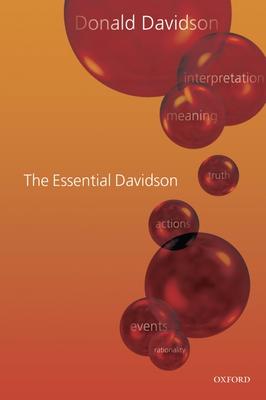
Davidson's philosophical program is organized around two connected projects. The first is that of understanding the nature of human agency. The second is that of understanding the nature and function of language, and its relation to the world. Accordingly, the first part of the book presents Davidson's investigation of reasons, causes, and intentions, which revolutionized the philosophy of action. This leads to his notable doctrine of anomalous monism, the view that all mental events are physical events, but that the mental cannot be reduced to the physical. The second part of the book presents the famous essays in which Davidson set out his highly original and influential philosophy of language, which founds the theory of meaning on the theory of truth.
These fifteen classic essays will be invaluable for anyone interested in the study of mind and language. Fascinating though they are individually, it is only when drawn together that there emerges a compelling picture of man as a rational linguistic animal whose thoughts, though not reducible to the material, are part of the fabric of the world, and whose knowledge of his own mind, the minds of others, and the world around him is as fundamental to his nature as the power of thought and speech itself.
Davidson's philosophical program is organized around two connected projects. The first is that of understanding the nature of human agency. The second is that of understanding the nature and function of language, and its relation to the world. Accordingly, the first part of the book presents Davidson's investigation of reasons, causes, and intentions, which revolutionized the philosophy of action. This leads to his notable doctrine of anomalous monism, the view that all mental events are physical events, but that the mental cannot be reduced to the physical. The second part of the book presents the famous essays in which Davidson set out his highly original and influential philosophy of language, which founds the theory of meaning on the theory of truth.
These fifteen classic essays will be invaluable for anyone interested in the study of mind and language. Fascinating though they are individually, it is only when drawn together that there emerges a compelling picture of man as a rational linguistic animal whose thoughts, though not reducible to the material, are part of the fabric of the world, and whose knowledge of his own mind, the minds of others, and the world around him is as fundamental to his nature as the power of thought and speech itself.
Paperback
$51.71